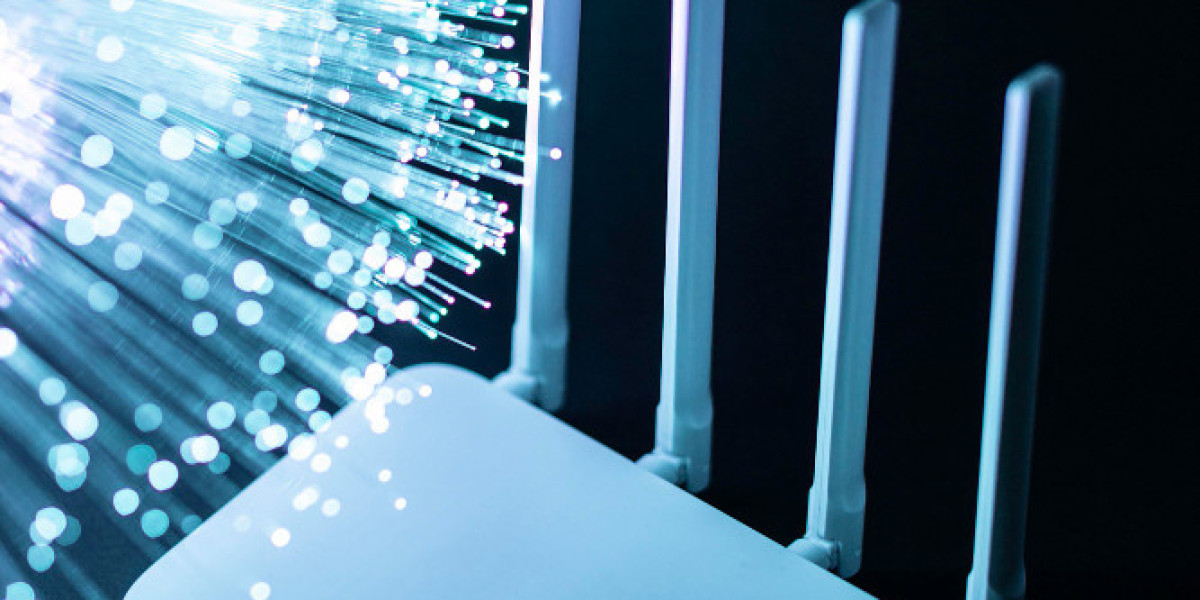What Are Fiber Internet Plans?
Fiber internet plans refer to broadband internet services that use fiber-optic cables to deliver high-speed internet to homes and businesses. Unlike traditional copper cables, fiber-optic technology transmits data as light signals, allowing for significantly faster internet speeds and improved performance.
Why Choose Fiber Internet?
There are several reasons why fiber internet is becoming increasingly popular:
1. High-Speed Connectivity
One of the primary advantages of fiber internet plans is their speed. Fiber connections can offer speeds ranging from 100 Mbps to over 1 Gbps (1,000 Mbps). This means you can stream high-definition videos, play online games, and download large files without any lag. For households with multiple users, fiber internet can handle the demand effortlessly.
2. Reliability
Fiber internet is known for its reliability. Since it’s less susceptible to interference from weather conditions or electrical signals, fiber connections tend to offer consistent speeds. This reliability is crucial for remote work, online classes, and video conferencing, where interruptions can be disruptive.
3. Symmetrical Speeds
Many fiber internet plans provide symmetrical speeds, meaning the download and upload speeds are the same. This feature is particularly beneficial for users who upload large files, stream videos, or engage in video calls. With symmetrical speeds, you won’t experience slow upload times when sharing content.
4. Future-Proof Technology
As technology advances, the demand for faster internet speeds continues to grow. Fiber-optic technology is capable of supporting even higher speeds in the future, making it a future-proof choice. By opting for fiber internet now, you’re investing in a service that will remain relevant for years to come.
5. Low Latency
Fiber internet offers low latency, which is crucial for activities like online gaming and video streaming. Low latency means there’s minimal delay between sending and receiving data, providing a smoother online experience.
Types of Fiber Internet Plans
When it comes to fiber internet, there are different types of plans available to cater to varying needs:
1. Residential Fiber Plans
Residential fiber plans are designed for home users. These plans typically offer various speed options, allowing you to choose a plan that fits your usage needs. If your household consists of multiple users who stream, game, and browse simultaneously, consider opting for higher-speed plans.
2. Business Fiber Plans
Business fiber plans are tailored for commercial use. They often come with enhanced features such as higher speeds, dedicated customer support, and service level agreements (SLAs) to ensure reliable service. These plans are ideal for businesses that rely on a stable internet connection for operations, remote work, and customer interactions.
3. Gigabit Fiber Plans
Gigabit fiber plans provide ultra-high-speed internet, typically up to 1 Gbps or more. These plans are perfect for tech-savvy users, gamers, and families that require maximum bandwidth for streaming and downloading large files. While these plans may come at a premium, the investment can be worthwhile for those who need top-tier performance.
Factors to Consider When Choosing Fiber Internet Plans
When selecting a fiber internet plan, there are several factors to keep in mind:
1. Speed Requirements
Assess your internet usage to determine the appropriate speed for your needs. If you primarily browse the web and check emails, a lower speed may suffice. However, if you frequently stream 4K videos or play online games, opting for a higher-speed plan is advisable.
2. Data Caps
While many fiber internet plans offer unlimited data, some may have data caps. Be sure to check the terms of service to ensure you won’t incur additional charges if you exceed a certain data limit.
3. Contract Length
Some fiber internet providers require customers to sign a contract for a specific duration. Review the contract terms, including any early termination fees, to ensure you’re comfortable with the commitment.
4. Installation Fees
Consider any installation fees associated with setting up your fiber internet. Some providers may waive these fees during promotional periods, while others may charge a one-time fee. It’s essential to factor these costs into your overall budget.
5. Customer Support
Reliable customer support is crucial for resolving any issues that may arise. Research the provider’s customer service reputation, including response times and availability. Reading online reviews can help you gauge the level of support you can expect.
How to Set Up Fiber Internet
Setting up fiber internet typically involves the following steps:
1. Check Availability
Not all areas have access to fiber internet. Use online tools or contact providers to check if fiber services are available in your location.
2. Choose a Plan
Once you’ve confirmed availability, review the different fiber internet plans and select one that fits your needs and budget.
3. Schedule Installation
After selecting a plan, schedule an installation date with your provider. Some providers offer self-installation options, while others may send a technician to set up the service.
4. Connect Your Devices
Once the installation is complete, connect your devices to the fiber network. You may need to configure your router settings for optimal performance.
5. Test Your Connection
After everything is set up, test your internet connection to ensure you’re getting the speeds promised in your plan. If you notice any discrepancies, contact your provider for assistance.
Advantages of Fiber Internet Over Other Types
When comparing fiber internet to other types of internet connections, such as DSL or cable, several advantages become apparent:
1. Speed Comparison
While DSL and cable internet can provide decent speeds, they often fall short compared to fiber. Cable internet speeds can fluctuate based on usage, while DSL is limited by distance from the service provider. In contrast, fiber internet consistently delivers high speeds regardless of the number of users.
2. Better Performance During Peak Times
Cable internet can experience slowdowns during peak usage hours when many users are online. Fiber internet, however, maintains performance levels even during busy periods, ensuring a smooth online experience at all times.
3. Enhanced Security
Fiber-optic cables are more secure than traditional copper cables. They are less vulnerable to hacking and interference, providing a more secure internet connection for sensitive transactions and data.
Conclusion
Fiber internet plans offer numerous benefits that make them an attractive choice for both residential and business users. With high speeds, reliability, and low latency, fiber internet is ideal for today’s demanding online activities. When choosing a fiber internet plan, consider your speed requirements, potential data caps, and the provider’s reputation for customer service.








